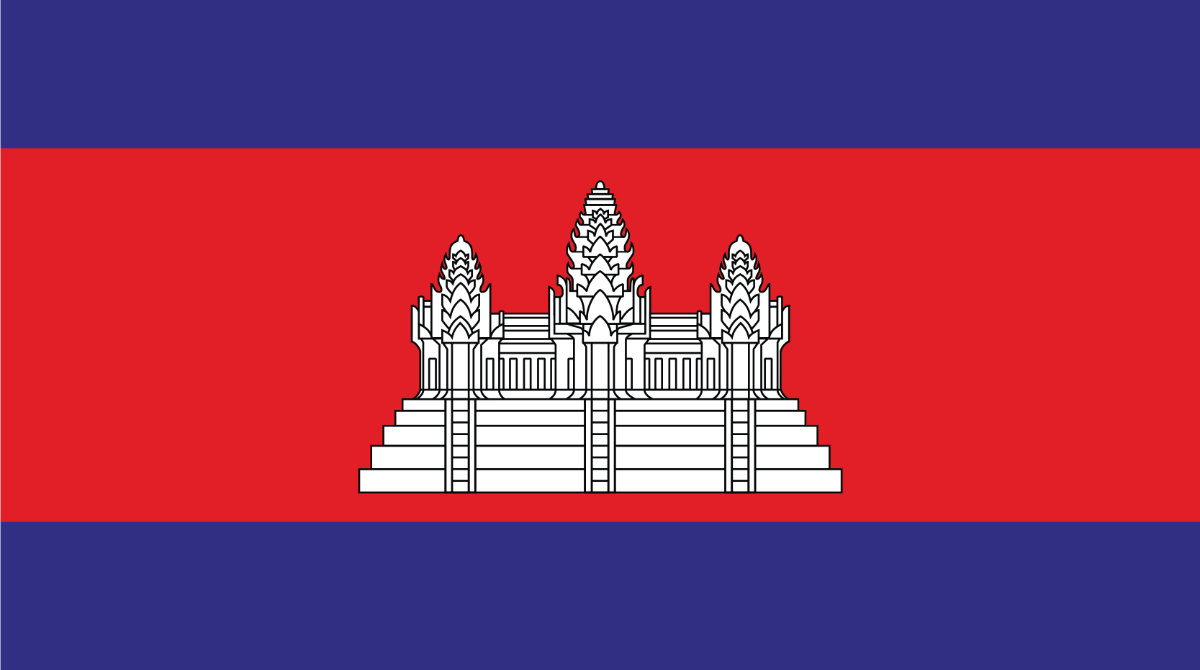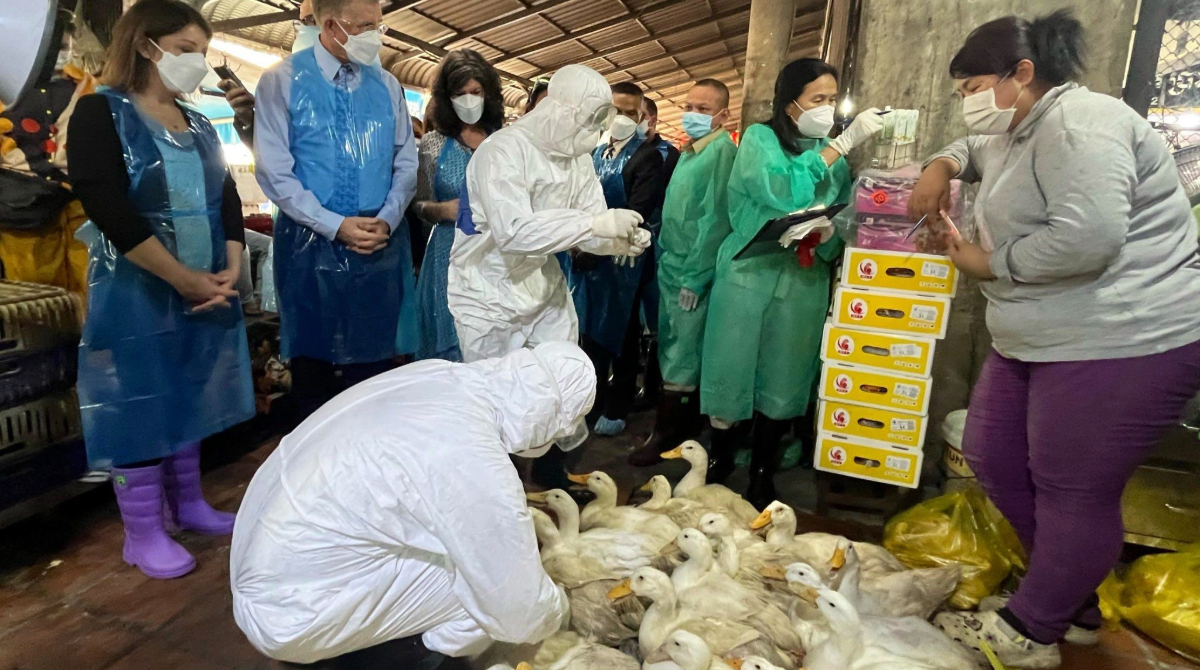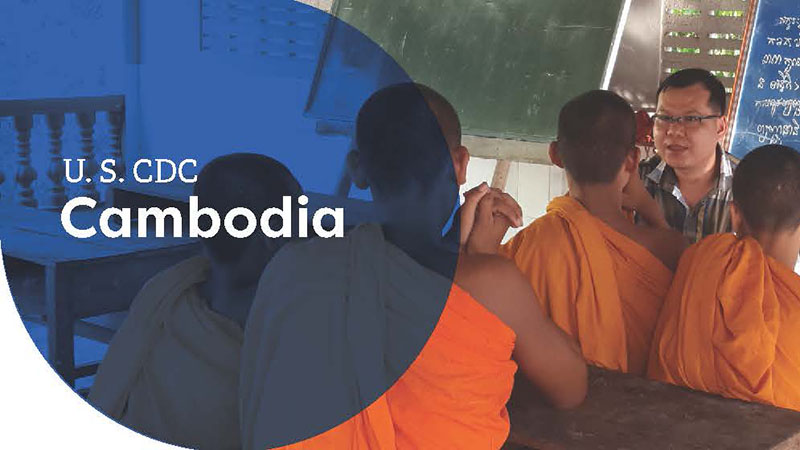At a glance
CDC works with the Ministry of Health (MOH) and other partners to build effective public health collaboration and partnerships, which strengthen the country's core public health capabilities: data and surveillance, laboratory capacity, workforce and institutions, prevention and response, innovation and research, and policy, communications, and diplomacy.

Overview
CDC established an office in the Kingdom of Cambodia in 2002. CDC Cambodia works closely with the Government of Cambodia and partner organizations to detect, prevent and control infectious disease outbreaks and build and strengthen the country's core public health capabilities. These include data and surveillance, laboratory capacity, workforce and institutions, prevention and response, innovation and research, and policy communications and diplomacy. CDC's work aims to protect the health of our nations and public health around the world.
CDC in Cambodia also addresses global health security, HIV, malaria, influenza, and other respiratory illnesses and infectious diseases.
Global health security
Surveillance systems
CDC works with partners in Cambodia to improve public health surveillance systems, collecting and using health-related information to improve programs. CDC provides technical assistance to strengthen several infectious disease surveillance systems, including sentinel surveillance for antimicrobial resistance and severe acute respiratory infection (SARI) and influenza-like illness (ILI). Patients with SARI or ILI are routinely tested for influenza, SARS-CoV-2, and respiratory syncytial virus (RSV). CDC also supports the event-based Cambodian Early Warning Surveillance System as well as surveillance for emerging and re-emerging infectious diseases such as COVID-19 and mpox.
CDC supported MOH, the Ministry of Agriculture Forestry and Fisheries (MAFF), and the Ministry of the Environment (MOE) to conduct a One Health Zoonotic Disease Prioritization Workshop in 2023. Participants reviewed evidence and agreed on five top priority zoonotic diseases: zoonotic avian influenza (bird flu), Nipah, COVID-19, Japanese encephalitis, and rabies.
Laboratory systems
CDC helps strengthen the quality of laboratory systems in Cambodia to accurately diagnose, monitor, and treat infections, including HIV, SARS-CoV-2, influenza, and other respiratory pathogens. CDC helped establish and provides support for a laboratory quality management system and an external quality assurance program. CDC is also supporting provincial HIV laboratories to achieve international accreditation.
ISO Accreditation
Workforce development
Cambodia's Field Epidemiology Training Program (FETP) was established in 2011. FETP trains public health staff at the national, provincial and district level in field-based epidemiology to detect, prevent, and control diseases to help prevent and rapidly mitigate infectious disease outbreaks. CDC Cambodia supports the frontline (basic 3-month course) and intermediate (9-month course) tiers of FETP. The intermediate program was launched in 2023, resulting in 10 graduates, and a second cohort began in February 2024. CDC provides technical assistance and mentorship for Cambodian staff attending advanced FETP training as part of regional programs in Thailand and Australia.
CDC strengthens laboratory leadership capacity through the Global Laboratory Leadership Program. Five staff from MOH's National Institute of Public Health (NIPH) and MAFF's National Animal Health Production Institute Laboratory began a two-year program as part of the first South East Asia regional cohort.
CDC is working closely with MOH, MAFF and MOE to strengthen One Health Rapid Response team capacity to better prepare for joint multi-sectoral responses to zoonotic outbreaks.
Key achievements
- By February 2024, 235 public health staff in Cambodia graduated from epidemiology training programs supported by CDC.
- CDC has provided hands-on technical support to the MOH’s Emergency Operations Center during the COVID-19 pandemic.
- CDC has trained rapid response team staff to respond to key priority disease outbreaks. CDC regularly provides technical assistance to develop surveillance, laboratory and clinical guidance for emerging infectious diseases such as COVID-19, avian influenza, and mpox.
HIV and TB
As a key implementer of the U.S. President's Emergency Plan for AIDS Relief (PEPFAR), CDC plays an essential role in the fight against HIV and TB. With unmatched scientific and technical knowledge and long-standing relationships with ministries of health, CDC is uniquely positioned to advance HIV, TB, and other global health security activities that keep Americans safe at home and abroad.
Through PEPFAR, CDC provides critical support to Cambodia's public health infrastructure, improving the country's ability to prevent, detect, and respond to HIV, TB, and other infectious diseases and minimizing their risk from entering the U.S.
Malaria
CDC has collaborated with Cambodia's National Center for Parasitology, Entomology and Malaria, and other partners to support implementation of malaria prevention and control activities in Cambodia since 2020. Through this work, CDC supports Cambodia's Elimination Action Framework to achieve a vision of a malaria-free Cambodia.
CDC-supported activities have included providing technical input in:
- Surveillance (antimalarial drug case-based)
- Vector identification
- Malaria case management
- Supply chain management
- Social and behavior change communication
Key achievements
- Cambodia has not had a single malaria death since 2017.
- Between 2022 and 2023, Cambodia experienced a 92% reduction in malaria cases from the Plasmodium falciparum (P. falciparum) parasite—the most severe form of malaria. Cambodia reported zero cases of P. falciparum malaria during the last eight weeks of 2023.
Influenza
CDC works with the Cambodian government and other partners to conduct influenza sentinel surveillance and build laboratory and response capacity. The network monitors seasonal influenza and detects novel influenza viruses among persons with respiratory illness. The platform has been expanded to test for SARS-CoV-2 and RSV.
Cambodia contributes to the World Health Organization Global Influenza Surveillance and Response System and global genomic surveillance of SARS-CoV-2. CDC supports surveillance for avian influenza A in live bird markets in multiple provinces.
CDC works closely with partners to respond to sporadic human infections of pathogenic avian influenza (HPAI) A(H5N1) (bird flu) virus. Partners include MOH, MAFF, NIPH, Institut Pasteur du Cambodge, and the Wildlife Conservation Society of Cambodia.
Key achievements
- CDC supported the establishment of an influenza molecular biology laboratory at the NIPH.
- CDC supports identification and characterization of novel influenza viruses in Cambodia.
- CDC supports case investigations of sporadic human infections with HPAI A(H5N1) bird flu virus.
Success story spotlight
Enhancing Pandemic Preparedness through Outbreak Response in Cambodia

During 2023, six human cases of H5N1 avian influenza (bird flu) were detected in Cambodia. These are the first human cases identified in the country in nearly a decade. The first two cases were in a father and a daughter, raising global concern of possible person-to-person transmission.
CDC staff arrived within 24 hours to aid in a comprehensive outbreak investigation that leveraged local epidemiology, laboratory, and response capacities. Investigators quickly determined the source of infection and shared accurate information with the public. Throughout the investigation, CDC staff in Atlanta worked to support the in-country response and clarify the risk to the U.S. public.
Successful and comprehensive response was made possible by two decades of CDC engagement in the region, including supporting influenza surveillance and technical collaboration, developing strong partnerships with local governments and other partners, and maintaining a strong regional presence through Influenza Regional Hubs that readily provide outbreak support, resulting in stronger global health security overall.
